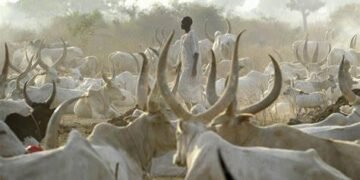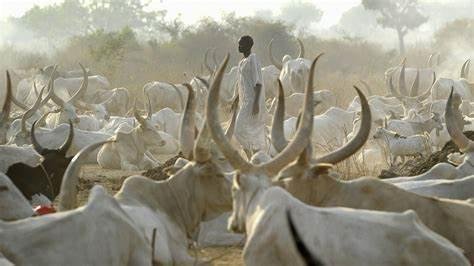Authorities in Melut County, Upper Nile State have imposed a temporary ban on the consumption of milk and meat from dead cattle following the sudden and unexplained deaths of over 30 animals in Damtum village.
The alarming livestock deaths have prompted urgent action from local officials, who have collected samples for laboratory testing to determine the cause of the disease.
Initial autopsies conducted by veterinary officials suggest possible blood poisoning, but the exact pathogen remains unknown.
Melut County Executive Director, Lual Chol confirmed to the State-run South Sudan Broadcasting Corporation (SSBC) that health authorities have been notified and have issued a strict ban on milk consumption in affected villages to prevent potential human health risks.
“Medical authorities have notified relevant authorities and banned the consumption of cow milk in the villages,” Chol stated.
In response to the crisis, Samuel Magol, a representative of the United Nations Food and Agricultural Organization (FAO), announced that vaccines have been prepared and will be administered as soon as the test results are released.
“We came this morning with our partner, NRDO, so that we can assess and take the critical examinations and the history from the farmers,” Magol explained.
“Based on what we have found, it will determine which type of disease through postmortem findings and also critical history from the farmers. We saw some dead animals thrown around, but we advised that they can just bury the livestock carcasses, and we are going to prepare the vaccination [which] will commence soon after we collect this information from the owners.” He continued.
A local cattle keeper whose livestock was affected described the sudden and devastating loss that befell their cattle camps in the Melut area.
“It was around 2:00 PM when we were awakened by the news of the death of the cows. By the time we realized three of our cows had fallen, and when we went to side of camp two, we found a lot of cattle had died, which troubled us and we questioned what could have killed the animals, most of which were small.” He stated.
The rapid spread of the disease has caused significant concern among the local cattle keeping communities, who rely heavily on livestock for sustenance and livelihood. The temporary ban on milk and meat consumption is expected to have a significant impact on the affected villages.












